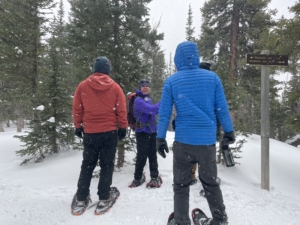Schizotypal Personality Disorder: Similar to Schizophrenia and Schizoaffective Disorder But Different
 Schizotypal personality disorder (STPD)—also known as schizotypal disorder—is a mental health condition marked by a consistent pattern of intense discomfort with relationships and social interactions. People with STPD have unusual thoughts, speech, and behaviors, which usually hinder their ability to form and maintain relationships.
Schizotypal personality disorder (STPD)—also known as schizotypal disorder—is a mental health condition marked by a consistent pattern of intense discomfort with relationships and social interactions. People with STPD have unusual thoughts, speech, and behaviors, which usually hinder their ability to form and maintain relationships.
While patients frequently present with similar symptoms to schizophrenia and schizoaffective disorder, STPD is quite distinct. “The biggest distinction in diagnosis, at least, is that schizotypal disorder is one of the personality disorders (along with borderline, obsessive-compulsive, and several others),” wrote Lisa Miles on PsychCentral. “Delusions and hallucinations are the hallmarks of schizoaffective disorder, almost akin to schizophrenia. In schizotypal disorder, however, these two traits are not so extensive as they are with people with schizophrenia.”
Indeed, psychosis is the primary symptom of schizophrenia, as the late Colorado Recovery founder Richard Warner explained. “Schizophrenia is a psychosis—a severe mental disorder in which the person’s emotions, thinking, judgment, and grasp of reality are so disturbed that his or her functioning is seriously impaired,” Dr. Warner wrote in his book The Environment of Schizophrenia.
Schizoaffective disorder is a mental health disorder that is marked by a combination of schizophrenia symptoms, such as hallucinations or delusions (psychosis), and mood disorder symptoms, such as depression or mania.
Several schizotypal disorder symptoms mimic those of other mental illnesses, so it’s not always easy to diagnose it correctly. People with STPD feel pronounced discomfort in forming and maintaining social connections with other people, primarily due to the belief that other people harbor negative thoughts and views about them.
Peculiar speech mannerisms and socially unexpected modes of dress are also characteristic. Schizotypal people may react oddly in conversations, not respond, or talk to themselves. They frequently interpret situations as being strange or having unusual meanings for them—paranormal and superstitious beliefs are common.
Schizotypal patients frequently disagree with the suggestion that their thoughts and behaviors are a “disorder” and seek medical attention for depression or anxiety instead. It is estimated that STPD occurs in three to five percent of the general population and is more commonly diagnosed in males. Some people with schizotypal personality disorder later develop schizophrenia.
Signs and Symptoms
According to the Cleveland Clinic, persons with schizotypal personality disorder may:
- Have intense social anxiety and poor social relationships.
- Not have close friends or confidants, except for first-degree relatives.
- Have peculiar behaviors and mannerisms.
- Have odd thoughts and speech, such as using excessively abstract or concrete phrases or using phrases or words in unusual ways.
- Have unusual perceptive experiences and magical beliefs, such as thinking they have special paranormal powers.
- Incorrectly interpret ordinary situations or happenings as having special meaning for them (idea of reference).
- Be paranoid and suspicious of others’ intentions.
- Have difficulty with responding appropriately to social cues, such as maintaining eye contact.
- Have a lack of motivation and underachieve in educational and work settings.
Personality disorders, including schizotypal personality disorder, are among the least understood mental health conditions. Researchers currently think the cause of STPD is mainly biological and genetic because it shares many of the brain changes characteristic of schizophrenia. Treatment for STPD may include psychotherapy and low-dose antipsychotic medications.
At Colorado Recovery it is our mission to help adults with serious mental health issues stabilize their illness, minimize symptoms, improve functioning, and enhance each person’s social inclusion, quality of life, and sense of meaning in life.
If you have questions about our recovery model or our services to treat schizophrenia, bipolar disorder, and similar mental illnesses, call us at 720-218-4068 to discuss treatment options for you or the person you would like to help.

 Like everybody else, people with mental health issues strive to live meaningful and satisfying lives. Colorado Recovery approaches mental healthcare based on a path of self-reliance through developed practiced skills. This non-institutionalized
Like everybody else, people with mental health issues strive to live meaningful and satisfying lives. Colorado Recovery approaches mental healthcare based on a path of self-reliance through developed practiced skills. This non-institutionalized 

